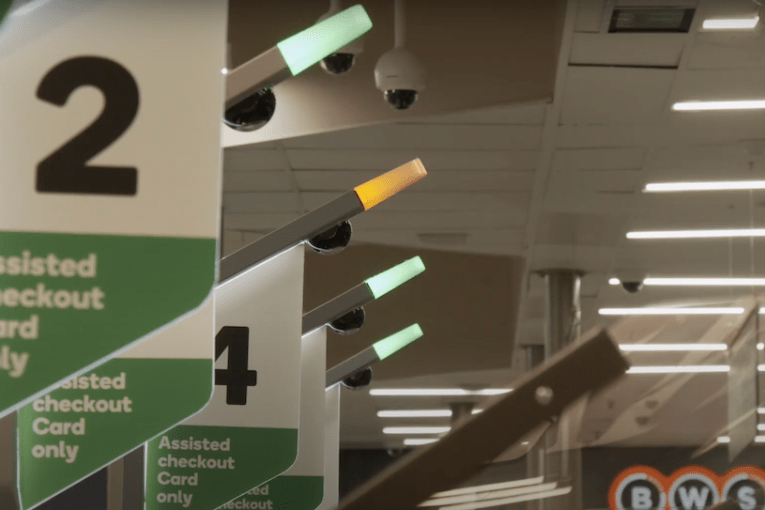Coronavirus: How the housing market is defying the pandemic


Australia's property market has so far shrugged off concerns about the virus. Photo: The New Daily
The World Health Organisation’s announcement of a coronavirus pandemic has prompted a rapid escalation in the response to the contagion, with inevitable flow-on effects to the global economy.
As countries announce nationwide coronavirus lockdowns and month-long European travel bans, attention has turned to how Australia will weather the storm.
In recent days, the ASX 200 has suffered its worst falls since the GFC, and Prime Minister Scott Morrison is banking on a multibillion-dollar stimulus package to steer Australia away from recession.
One sector, however, has shown little sign of infection.
How the property market is holding up
Much of the Australian property market’s transformation from bust to boom can be attributed to the supply of credit.
Following Mr Morrison’s unexpected May election triumph, the Australian Prudential Regulatory Authority (APRA) loosened its guidelines on serviceability assessments.
Essentially, it dropped the interest rate floor on mortgage applications from a minimum of 7 per cent to a buffer of 2.5 per cent above the actual rate.
Coupled with the Reserve Bank’s recent interest rate cuts, it provided easier access to credit – enabling buyers to bid up prices and enticing vendors back into the market as values rose.
Home loan lending is subsequently on the rise, according to the Australian Bureau of Statistics.  In January, before the extent of the coronavirus was fully understood, the value of new home loans given to owner-occupiers jumped 5 per cent to $15.03 billion – up 26.9 per cent on the year before.
In January, before the extent of the coronavirus was fully understood, the value of new home loans given to owner-occupiers jumped 5 per cent to $15.03 billion – up 26.9 per cent on the year before.
And lending to investors increased 3.6 per cent.
CoreLogic head of residential research Eliza Owen said the Coalition’s housing deposit scheme had a negligible impact on the figures, with growth largely driven by existing home owners.
“When we consider the current upswing, it’s not necessarily all first-home buyers, although that is a segment that’s seen higher levels of finance than we might see historically,” Ms Owen said.
But it’s really a case of owner-occupiers who are upsizing or downsizing, and they’re releasing a lot of equity in the value of their home into the market.’’
The strength of the market can also be seen in the changes to values.
Home prices across the country have continue to trend upwards since stabilising in June, with record-high figures in five capital cities, led by Sydney (up 1.7 per cent in February) and Melbourne (up 1.2 per cent).
And most analysts expect prices to climb even higher, with AMP Capital senior economist Diana Mousina previously telling The New Daily prices would likely rise 10 per cent in 2020.
The word on the street
Australia’s booming property market has yet to experience any tell-tale signs of infection, as analysts await figures that could provide a clearer picture next month.
But anecdotal evidence suggests the virus is already putting off some buyers.
Cooley Auctions managing director Damien Cooley told The New Daily Sydney real estate agents have reported noticeable drops in attendance figures at open for inspections over the past fortnight.
But he said that may be the result of “Mum and Dad neighbours” exercising caution to stay away from unnecessary mass gatherings.
It would be naive to think that’s (coronavirus) not something the industry is thinking about,” Mr Cooley said.
“Would it affect the market? Yes, of course. Because if people are not going to be attending open for inspections or large gatherings … it changes confidence.”
Mr Cooley said many agents have already adapted to technologies that allow them to conduct sales digitally – from inspections through to transactions – if the government decrees an Italian-style lockdown.
These include live-streaming, virtual reality inspections and online marketing tools.
What’s next?
It’s still too early to predict the full scale of the coronavirus’ long-term impact, given the Australian outbreak is in its early stages.
Research cited in the Secret Agent Report pointed to a two per cent drop in Hong Kong house prices during the 2003 SARS outbreak.
But there are two unknowns that could compound any fall in prices: Unemployment, and the prospect of a looming recession.
Although the threat of coronavirus is omnipresent, Ms Owen said there’s reason to suggest the housing market could be relatively insulated, compared to financial markets.
“[Housing’s] not as volatile,” Ms Owen said.
“That comes back to basics in the asset. It’s relatively illiquid, so the asset takes longer to be sold off in times of uncertainty, so you’re less likely to have a run on housing, because it has relatively high barriers to entry.
“[House] pricing [information] isn’t quite as accessible as the second-by-second feed you get of the stockmarket, so the real-time information is harder to understand, so there’s less volatility as a result.”








